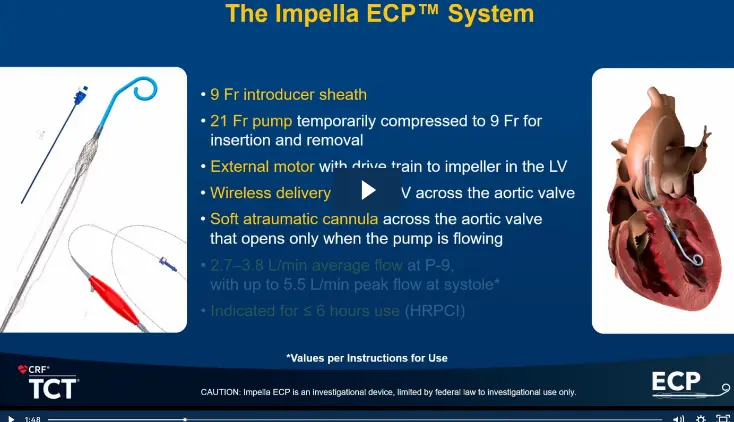Anticoagulation, Protected PCI
Vandenbriele: Anticoagulation and Protected PCI
Prof. Dr. Christophe Vandenbriele, a cardiologist and intensivist at University Hospital (UZ) Leuven, Belgium, discusses his paper recently published in the European Heart Journal Supplement as part of a series on best practices in Protected PCI. Prof. Vandenbriele is the senior author of the paper titled, “What is known in pre-, peri-, and post-procedural anticoagulation in micro-axial flow pump protected percutaneous coronary intervention?”
Prof. Vandenbriele describes the importance of anticoagulation in patients supported with percutaneous mechanical circulatory support (MCS) devices. He emphasizes the use of protocols and strategies for managing bleeding complications and the difference between anticoagulation strategies in the cath lab and in the intensive care unit (ICU).
Prof. Vandenbriele discusses the role of DAPT and P2Y12 inhibitors in patients undergoing PCI, noting that many questions still need to be answered, including how to properly anticoagulate patients, how to protect stents, and how to avoid bleeding complications. “So there’s still lots of work to do,” he states.
An important topic about the use of Impella® heart pumps in Protected PCI is the use of heparin in the Impella purge fluid. Prof. Vandenbriele explains that in the United States, the FDA has approved the use of sodium bicarbonate in the purge fluid* for heparin-intolerant patients, such as those with heparin-induced thrombocytopenia (HIT).
References
*Now Available for Impella CP® With SmartAssist®: Heparin-Free Purge Solution
NPS-3892


